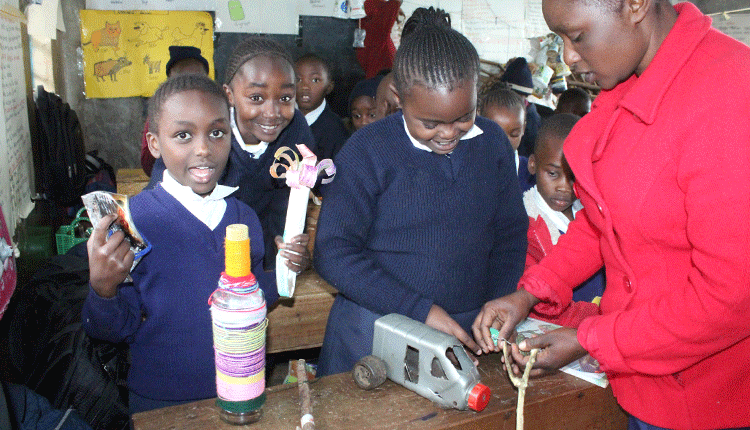Escalate CBC hitches, agency tells parents

The Kenya Institute of Curriculum Development (KICD) has urged parents to raise issues surrounding unsuitable assignments under the Competency-Based Curriculum (CBC) with head teachers.
The institute, whose core functions is to conduct research and develop curricular and curriculum support materials also advised parents to report specific concerns to the Ministry of Education or other relevant agencies, if not addressed at the school level.
“Parents are empowered to raise any unsuitable homework with the head teachers of the schools initially; if not addressed, specific cases can be reported to KICD,” said the institute in a statement.
The agency also urged parents to support children without having to do the work for them, even as it maintained that assignments should be within the abilities of pupils.
“Tasks involving undue costs to parents should be avoided. Show interest, provide basic needs including pencils, pens, ink, exercise books,” the KICD added.
Parents and guardians last week took to social media complaining that some assignments pupils carry home have tight deadlines and expensive.
According to KICD, the spirit of CBC is to leverage on readily available materials to facilitate learning, with parents and guardians encouraged to continue offering conducive environment for learners to link school tasks to their home environments.
The Education ministry has explained a child’s journey in CBC saying that between the ages of 1-3, they learn within family and in community.
At the age of 4 – 8 where learners are in Pre-Primary and lower primary school level, they master basic literacy, numeracy and life skills.
At the ages of 9–14, which covers upper primary and junior secondary, learners have the opportunity to identify individual talents, interests and potential.
At senior school which falls in the ages of 15-17, the Ministry explained that learners will have an opportunity to choose one of three pathways to master skills.
The three pathways are Arts and Sports Science, Social Sciences and Science Technology Engineering and Mathematics (STEM).
KICD also explained that the country is moving from 8-4-4 system, where there has been disconnect between curriculum, content and the world of work where many learners exit school without skills for work and life.
It also explained the shift from a disconnect in realising national goals of education and disconnect with the needs of the 21st Century which is a knowledge and skill age that demands a new way of thinking.
According to KICD, the competency approach seeks to prepare learners for new possibilities as the 21st Century demands transferable skills.
“The competency based approach seeks to produce a learner with competences to thrive now and in an increasingly changing world,” KICD explained.
Think differently
KICD also said education needs to mold learners with values to uphold peace and national unity across the country.
“Value based education and parental empowerment and engagement are core pillars in the new curriculum.
The competency approach seeks to produce a learner who has character… it needs to produce citizens who are willing to think differently, be creative and try out new ideas to solve challenges,” KICD added.
KICD has assured that it has been documenting the feedback from various stakeholders including teachers.
“Assignments are coming up as a major concern. As we said, parents should not do the assignments on behalf of learners.
They should just guide them. Relevant players within KICD are reviewing the responses that touch on our mandate and taking appropriate interventions,” said the institute.
Last week, Law Society of Kenya (LSK) President Nelson Havi said he would file a petition challenging CBC in court, noting that his move had been driven by cries from parents, guardians and teachers.










